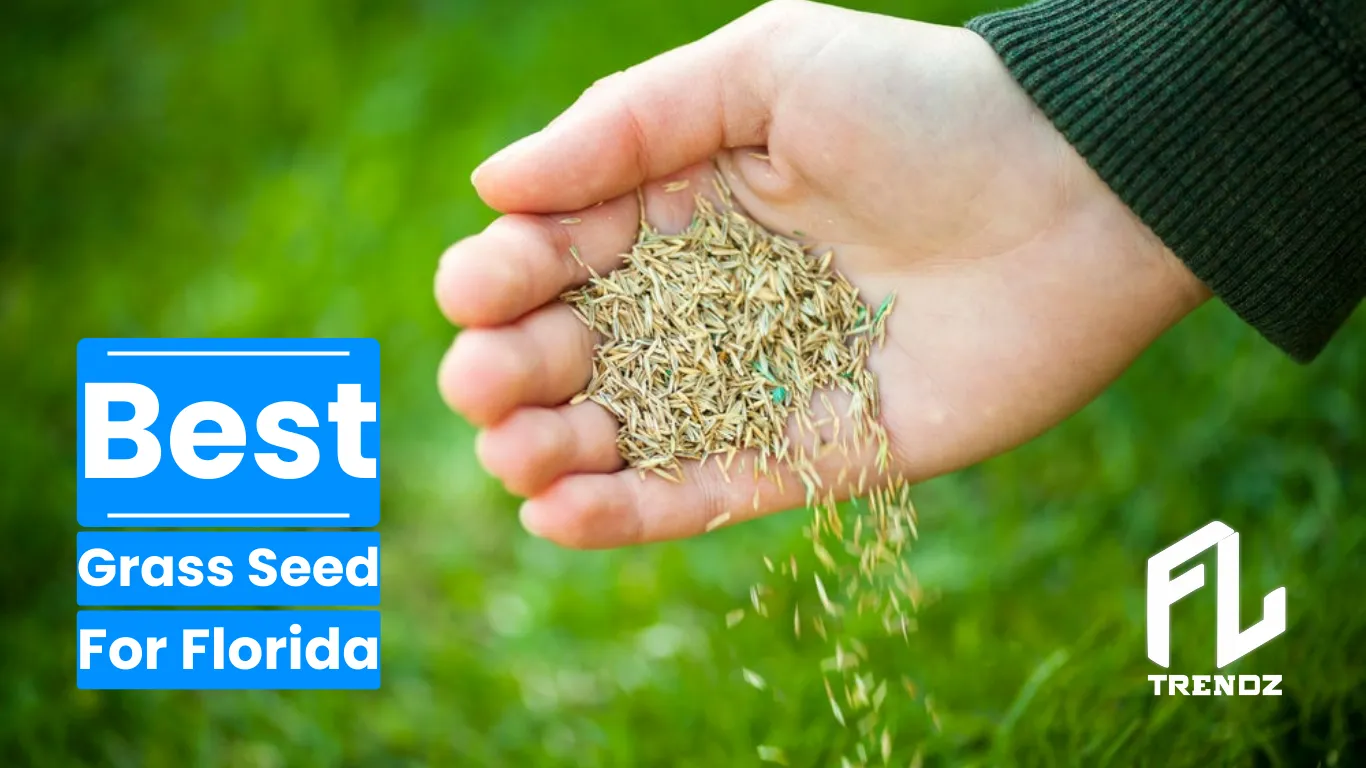Best Mulch for Florida: Latest Gardening Guide
Temperature, humidity, rainfall, and the chance of frost are important factors when picking the best mulch for Florida.
Here is what mulch does:
Saves Water: Mulch keeps the soil moist, so you don’t have to water as much.
Stops Erosion: It prevents the soil from washing away during rain.
Keeps Weeds Away: Mulch is like a shield against weeds, so your garden looks neat.
Looks Nice: It makes your garden look neat and pretty.
Best Mulch For Florida (Our Picks)
Incense Cedar Chips
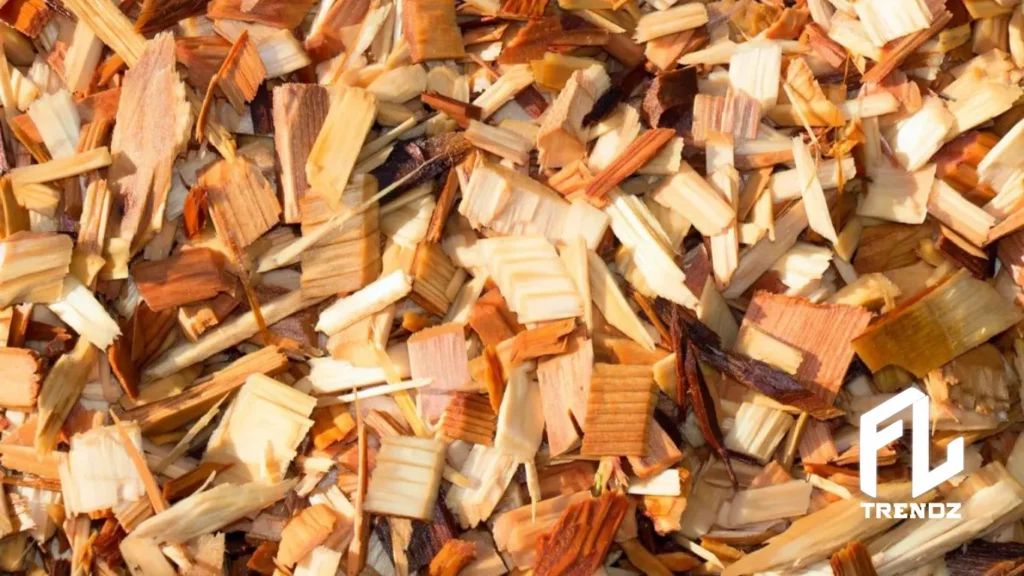
Product Details
| Brand | Double Tree Forest Products |
| Material | Cedar |
| Scent | Cedar |
| Weight | 0.6 KG |
$1199
Best Characteristics:
High-quality Incense Cedar Chip is made from natural cedar and comes in 3 sizes: 4 quarts, 8 quarts, and 16 quarts, perfect for any garden. Use them in your garden, pet bedding, or to freshen up spaces. They help with drainage, keep soil fresh, and eliminate odors. Cedar is sustainably harvested, so it’s eco-friendly. Trust Double Tree Forest Products for quality and eco-consciousness.
Pine Bark Mulch
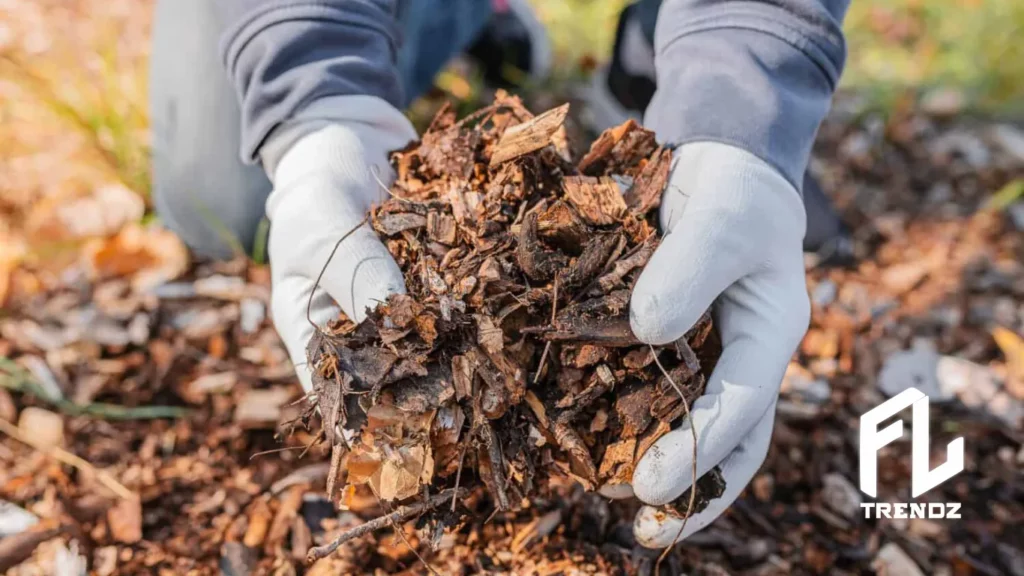
Product Details
| Brand | Soil Sunrise |
| Material | Pine Bark |
| Volume | 10 Quarts |
| Weight | 2.33 KG |
$3499
Premium pine bark mulch – the perfect addition to indoor and outdoor potted plants!
Benefits:
What is it? Pine bark mulch is made from aged and dried pine bark, finely shredded into 1/2-inch pieces. It has a beautiful red-brown color, which adds a charming touch to your plant containers.
Why is it great for plants?
More than just mulch: Pine bark nuggets are also perfect for terrarium decoration, adding a natural and appealing look. Plus, it’s eco-friendly because it’s made from pine bark.
Ideal for specific plants: It’s particularly beneficial for bromeliads, ferns, orchids, carnivorous plants, and aroids like philodendrons and anthuriums.
Its ability to retain moisture, protect roots, and improve soil make it a must-have for any gardener.
Ingredients: 100% pine bark mulch, average size 1/2-inch wood chips.
Straw Mulch
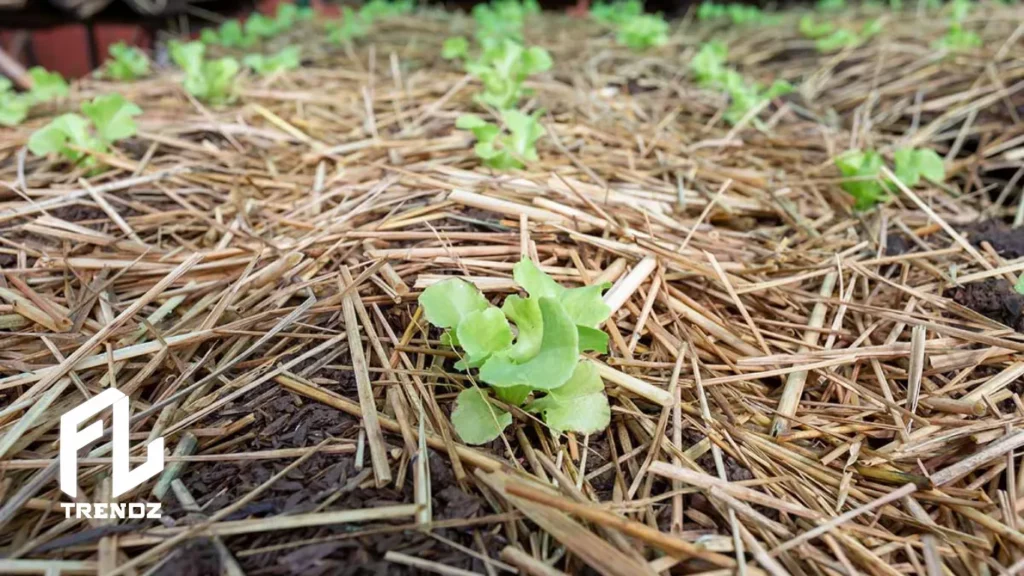
Product Details
| Brand | Blue Mountain Hay |
| Material | GMO-Free |
| Color | Golden |
| Product Type | Vegetable |
| Special For | Pet-Friendly |
| Weight | 2.26 KG |
$47
What is it for? Organic Garden Straw is perfect for gardens, flower beds, new lawn seeding, and composting.
How does it help?
Whether you have a large or small garden, straw mulch keeps your garden healthy and thriving.
Why Choose Organic Straw for Garden?
Organic straw is not only suitable for the garden but also for the environment. Here’s why it’s a fantastic choice:
So, choosing organic straw mulch benefits your garden and the land, especially when it’s free from harmful chemicals used during farming.
Rubber Mulch
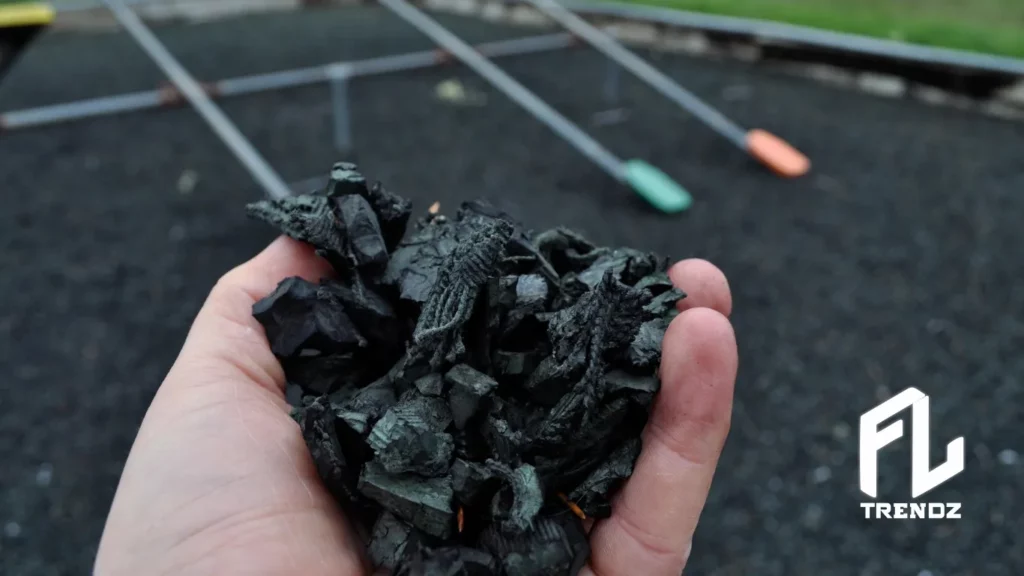
Product Details
| Brand | Rubberific |
| Material | Rubber |
| Color | Black |
| Usage | Outdoor |
| Special Feature | Drought Tolerant |
| Weight | 7.25 KG |
$34999
Benefits of Rubber Mulch:
In short, rubber mulch offers durability, color retention, and eco-friendliness while preserving moisture for your plants.
What is the best mulch for Florida?
Mulch is any material spread or laid over the soil as a covering. It’s used to retain moisture in the ground, keep the land at an ideal temperature, make a garden bed (or landscape) look more attractive, and suppress weeds.
Mulch protects the soil in a garden or landscape. Mulch can be made from grass, leaves, tree bark, needles, or wood. Stone and other inorganic materials, like recycled tires, can also synthesize the mulch.
Choosing mulch suited to your Florida region’s unique climate challenges will make your garden thrive and look beautiful.
Related: Best Outdoor Furniture For Florida
When picking mulch for your Florida garden, think about the particular climate of each region.
Best Mulch for North Florida
North Florida has more seasons than the rest of the state. Winters can get chilly with frosts and freezes, while summers are warm and humid but not as hot as South Florida.
Here are some things to keep in mind when choosing mulch for North Florida:
- Freezing Temperatures: Because it can get cold, mulch like pine straw or pine bark can insulate plant roots and protect them from frost.
- Moisture Retention: During dry summers, mulches like hardwood or pine straw can moisten the soil.
- Weed Control: Invasive weeds can still be a problem, so mulches like cypress or pine straw that stop weed growth are competent choices.
For North Florida, the best mulch is pine straw.
Best Mulch for Central Florida
Central Florida has a milder climate than North Florida, with less extreme temperatures. Summers are hot and humid, winters are generally mild, and frost is rare.
Here’s what to think about when choosing mulch for Central Florida:
- Moisture Management: Because it’s hot and humid, you’ll want mulches like pine straw or hardwood that keep the soil moist.
- Heat Tolerance: To handle the summer heat, consider mulches like cypress or pine bark that help regulate soil temperature.
- Weed Control: Weeds love this climate, so look for mulches that keep them in check.
For Central Florida, the best mulch is cypress, and pine mulch is also a good choice.
Best Mulch for South Florida
South Florida has a tropical climate with warm, humid weather year-round and occasional heavy rain. Frost is rare.
Here’s what to consider when choosing mulch for South Florida:
- Moisture Management: Because of the frequent rain and humidity, use mulches like pine bark or wood chips that allow good drainage to avoid waterlogged roots.
- Heat Regulation: To protect plants from intense sunlight, use mulches like cypress or pine bark that help control soil temperature.
- Salt Tolerance: If you’re in a coastal area, consider mulches like pine straw or eucalyptus, which can handle salt.
- Pest Protection: South Florida’s warmth attracts pests, so mulches like eucalyptus with natural pest-repelling properties can be helpful.
For South Florida, the best mulch is eucalyptus.
Importance of Mulches
Mulching makes your garden look nice and helps your plants grow better. Mulch helps the garden by controlling temperature, saving nutrients, and keeping the soil moist, which makes the garden healthier.
During hot Florida summers, mulch stops water from evaporating and aids plants in getting the water they need to grow well.
How To Use Mulch?
Mulching is required for Florida-friendly garden because it saves the garden or landscape from weed growth.
Studies and experiments have shown that mulch moistened the soil after irrigation and let roots absorb more water. Mulch provides a buffer layer between air and soil to protect the land from fierce temperatures.
Important Note: Mulch is only applicable for soil, not for plants.
The decomposition of mulches adds more nutrients to the soil that help improve soil structure, aeration, ability to hold nutrients and drainage. Even mulch is beneficial in reducing soil erosion and saves plants from diseases that kill them.
Not only does the landscape’s health matter, but the garden’s or land’s look also does. Ornamental plants and turf grass will not work in the deep, shady areas. At the same time, some areas will be where the irrigation or mowing to sustain the turf will be problematic.
Choose a Florida-friendly and attractive alternative of mulch that can bare the ground in these complex and shady areas.
Best Mulch For Florida Landscaping
Analyze and dissect the nutrient content, durability, and the origin of mulch before buying and not only compromise on the color and cost.
Florida-friendly Landscaping Program has restricted the use of cypress mulch because the origin of cypress has been found in Florida’s endangered wetlands and can damage the soil of the garden.
It is the same for utility mulch that has an identical endangered origin. Mainly, utility mulch is found on brush and local trees from where it takes pests and weed seeds that are harmful to the soil.
Mulch durability also should be considered because once they decompose, they reduce the mulch layer, resulting in the germination of weeds.
Alarming Sign: When mulch gets a 2″ fall depth, the evaporation and the erosion will increasingly start, and that’s the sign to replenish the mulch.
Tip: Replacing the damaged mulch is not recommended; instead, increase the other layer of mulch on the top of the bed.
Best Mulches for Specified Types
- Flower Beds: Use pine straw or cypress mulch. They keep water in, stop weeds, and make your garden look great.
- Vegetable Garden: Go for organic mulch like grass clippings or compost. They’ll break down, give your soil nutrients, and improve it.
- Fruit Trees: Pick pine bark nuggets or wood mulch for fruit trees. They keep the soil moist and protect the roots.
Types of Mulches
There are two types of mulch: organic and inorganic.
Organic mulch decomposes naturally over time. Like rubber or synthetic fabric, inorganic mulch does not decay independently.
Rubber and pebbles mulch of inorganic material have incredible durability. Inorganic mulches are non-living, so they have no nutrients to improve the soil like organic mulches.
For planting landscape beds, organic mulch options are the better ones.
Here are some of the mulch choices ordinarily available at home and garden shops:
Pine Bark Mulch
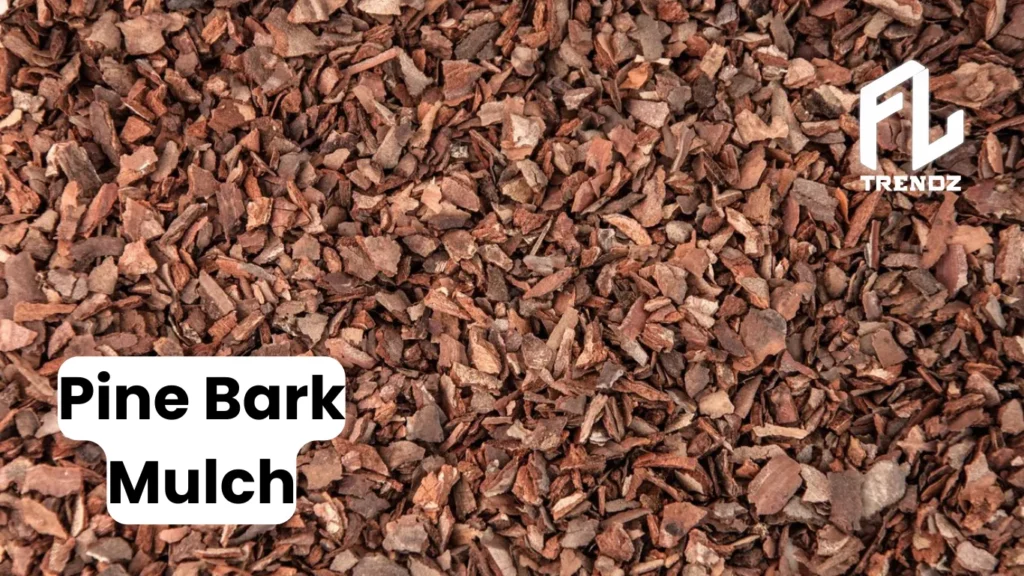
Pine bark is the synthesized byproduct of the rich brown color from the forest industry that recompenses gradually.
Pine Straw Mulch
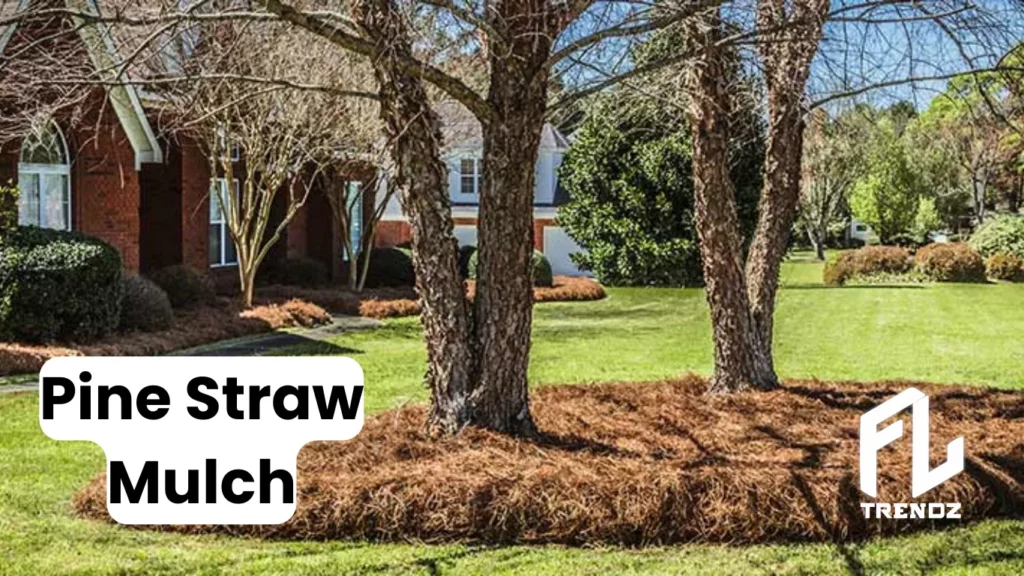
Pine straw mulch, from pine trees grown on ranches for paper and wood, adds a natural allure to landscapes. Unlike other mulches, it has interlocking needles. While budget-friendly, pine needle decomposes and settles quickly, requiring frequent freshening.
Fallen Leaves Mulch
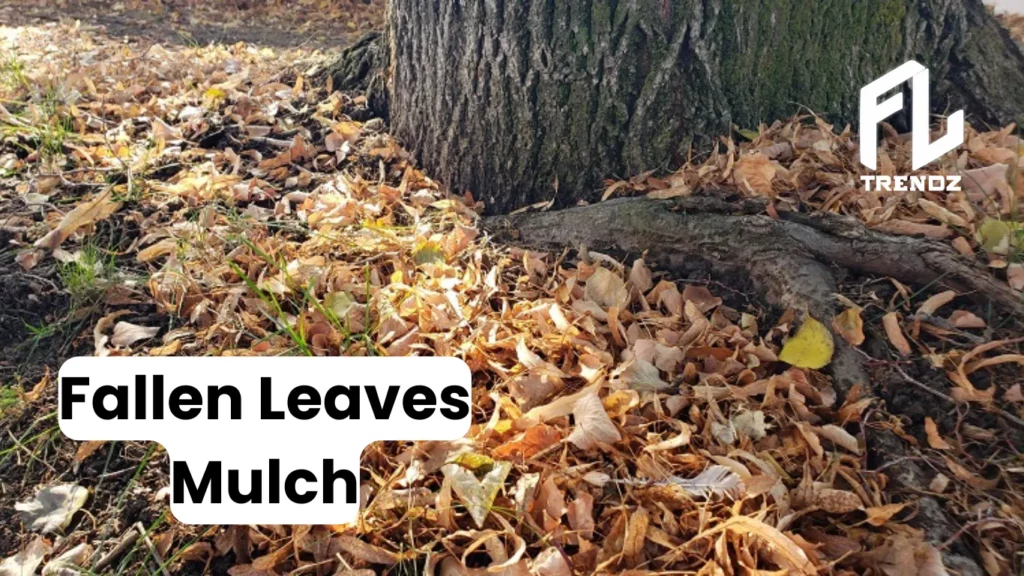
Collect fallen leaves, even grass clippings, for free in your yard and use them as mulch. These leaves are rich in nutrients but break down fast, so they rake repeatedly to maintain range. Like pine straw, leaf mulch provides a garden with a natural look. If you have big leaves, such as sycamore, mowing is necessary to prevent them from forming a dense mat.
Cypress Mulch
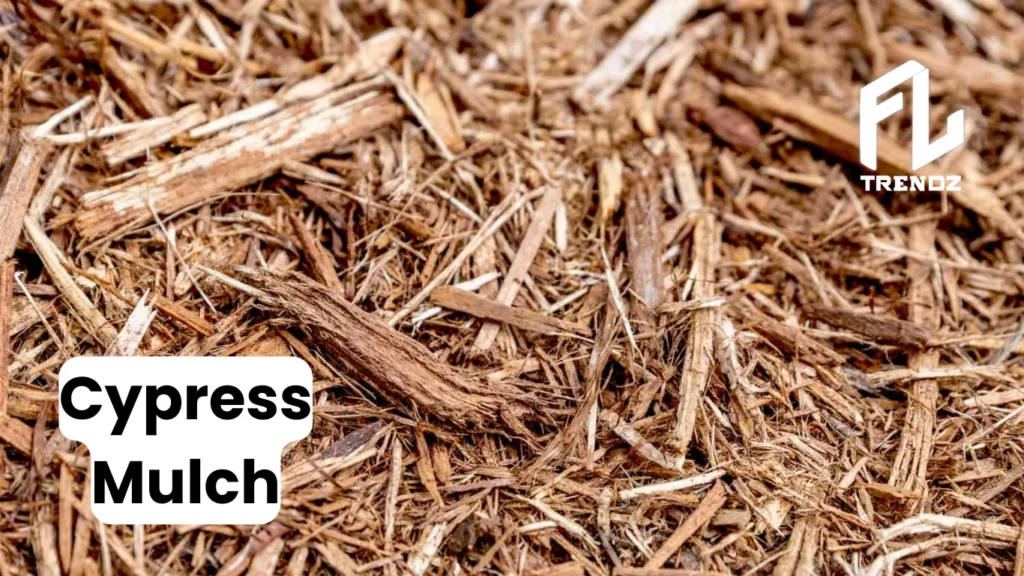
Cypress mulch is produced from the wood and bark of cypress trees found in Florida’s wetlands. These trees are used for products like lumber, furniture, and more. Sometimes, leftover parts or even whole trees from wetlands are turned into mulch. However, it is banned from use by the Florida-friendly Landscaping Program.
Mixed Hardwood Mulch
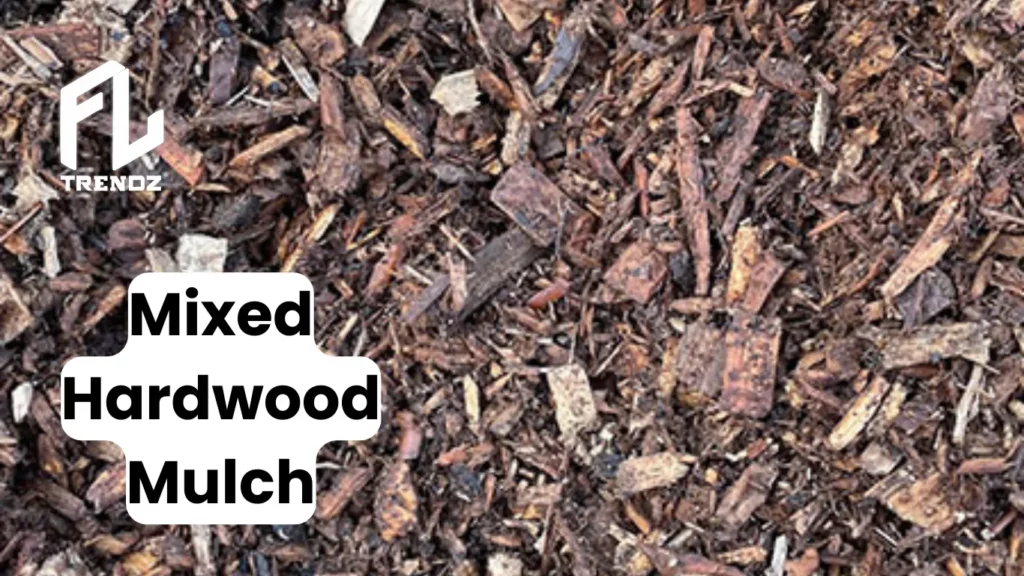
Mixed hardwood mulch from leftover wood, like scrap lumber or small tree parts, is unsuitable for other uses. It can replace cypress mulch. Hardwood mulches are sometimes dyed in colors like red, brown, black, or gray to improve general landscape. They settle faster than pine bark but slower than Pine straw or fallen leaves.
Melaleuca Mulch
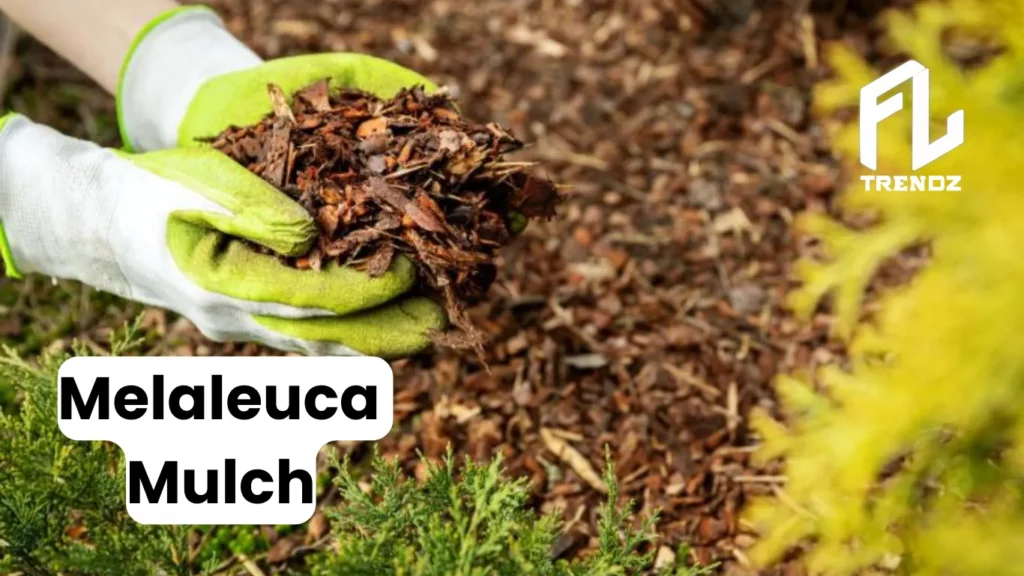
Melaleuca mulch is produced from invasive exotic trees but resembles traditional mixed hardwood and cypress mulches. It’s treated at a high temperature to prevent seeds from growing in your garden. This mulch doesn’t settle quickly, so it lasts a long time. According to a study, it’s more durable than pine bark and cypress mulch.
Eucalyptus Mulch
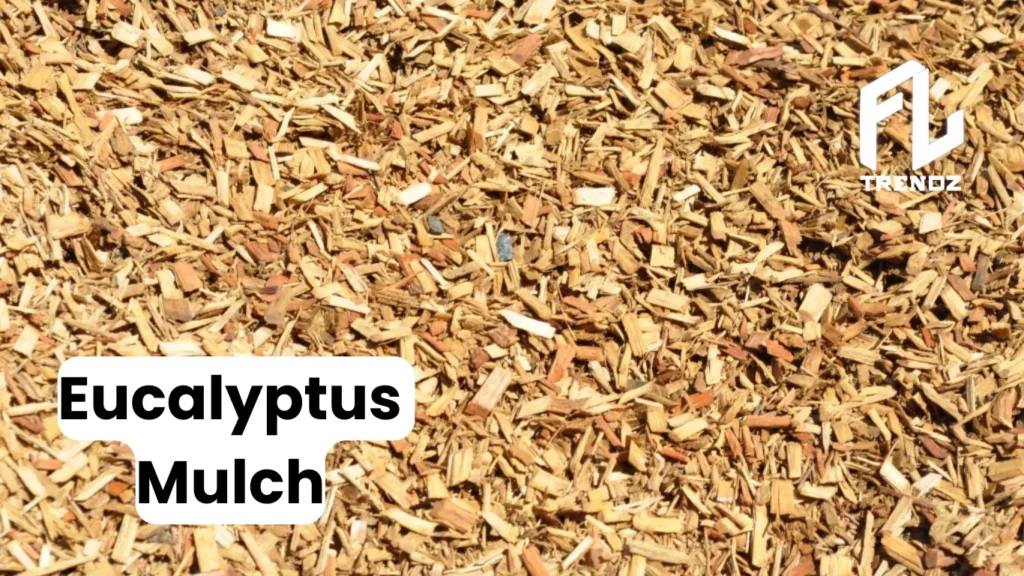
Eucalyptus mulch is produced from trees grown in South and Central Florida plantations for this purpose. These trees grow fast, so the mulch is renewable. It’s not as tough as cypress but lasts longer than utility mulch or pine straw.
Utility Mulch
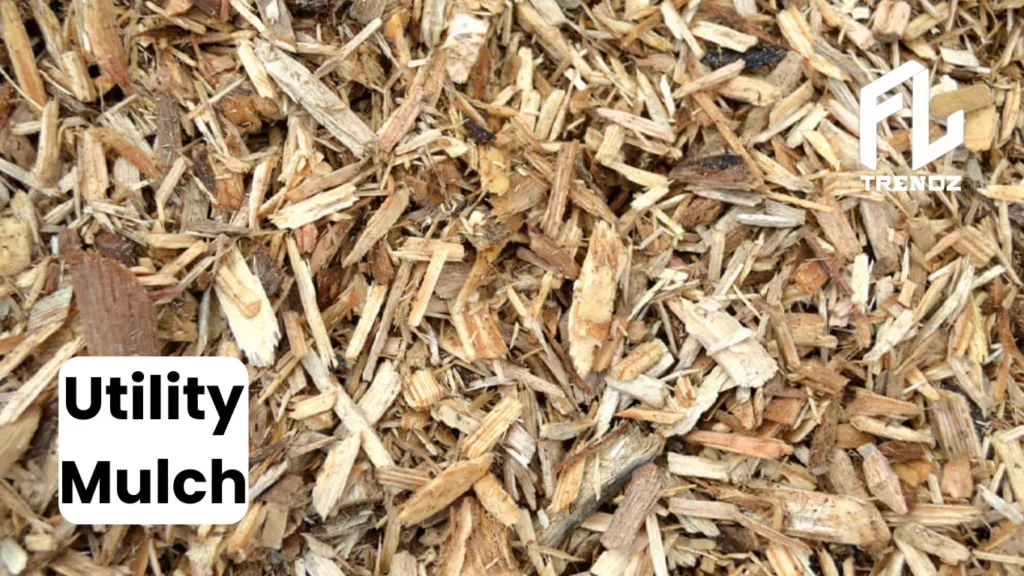
Utility companies provide utility mulch for free. It’s produced from tree and plant trimmings near power lines. Just recall that it contains weed seeds and other unwanted stuff. Sometimes, dirt and leaves get mixed in too. It is not best for flower and veggie gardens but works well for driveways, walkways, and natural areas.
Gravel and Pebbles Mulch
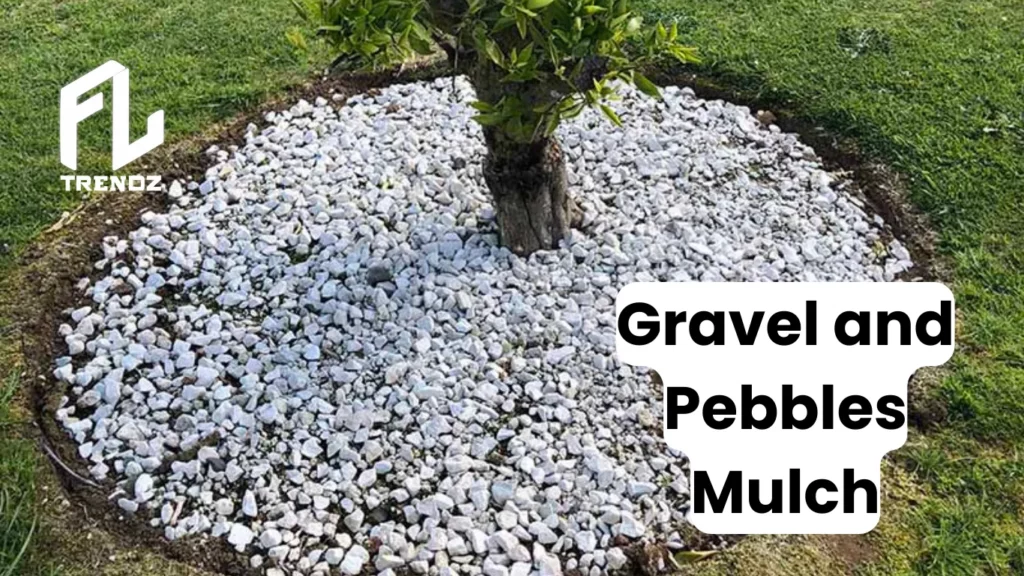
Use gravel and pebbles as mulch, but they will only add nutrients or help the soil hold water if organic. Use a woven ground cloth underneath to prevent them from sinking into sandy soil. These inorganic mulches last a while but clean them regularly to keep them looking good.
Rubber Mulch
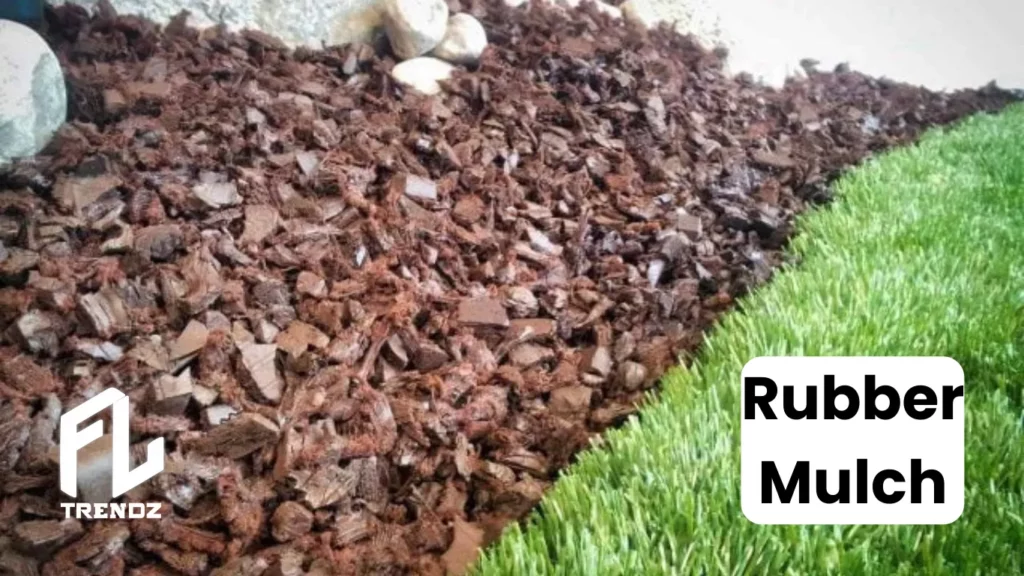
Rubber mulch from recycled tires is not recommended, as it is not exceptional at stopping weeds and can cause hot ground. There is concern about harmful chemicals getting into the soil as it breaks.
How much mulch should buy?
Florida-Friendly Landscaping recommends using 3 inches of mulch. One cubic yard can cover 324 square feet with 1 inch of mulch or 108 square feet with 3 inches. So, at a 3-inch depth, it will cover about a 10-foot square area.
If you want to cover a large area with mulch, figure out how many square feet it is.
Just multiply the length (L) by the width (W) for rectangular areas. For instance, if it’s 5 feet long and 10 feet wide, it’s 50 square feet to cover.
For circular areas, measure from the center to the radius edge. Multiply the radius by itself, and then multiply the result by 3.14. If it is 5 feet from the center to the edge, it is 78.5 square feet to cover.
To figure out irregular areas, split them down into circles and rectangles. Then, add the smaller sizes to get a rough estimate of the whole area.
To determine how much mulch is needed, multiply your square footage by the desired depth and divide that by 324 (the amount to cover one cubic yard). For example, if it is 128.5 square feet to cover and you want 3 inches of mulch, it’s about 1.2 cubic yards needed.
How To install mulch?
When putting down mulch in your yard, remember these easy tips:
Conclusion
Mulches differ in nature and are used accordingly. Before buying mulch, it is recommended to consult an expert who can test the soil type and climate conditions to suggest the most appropriate mulch.

